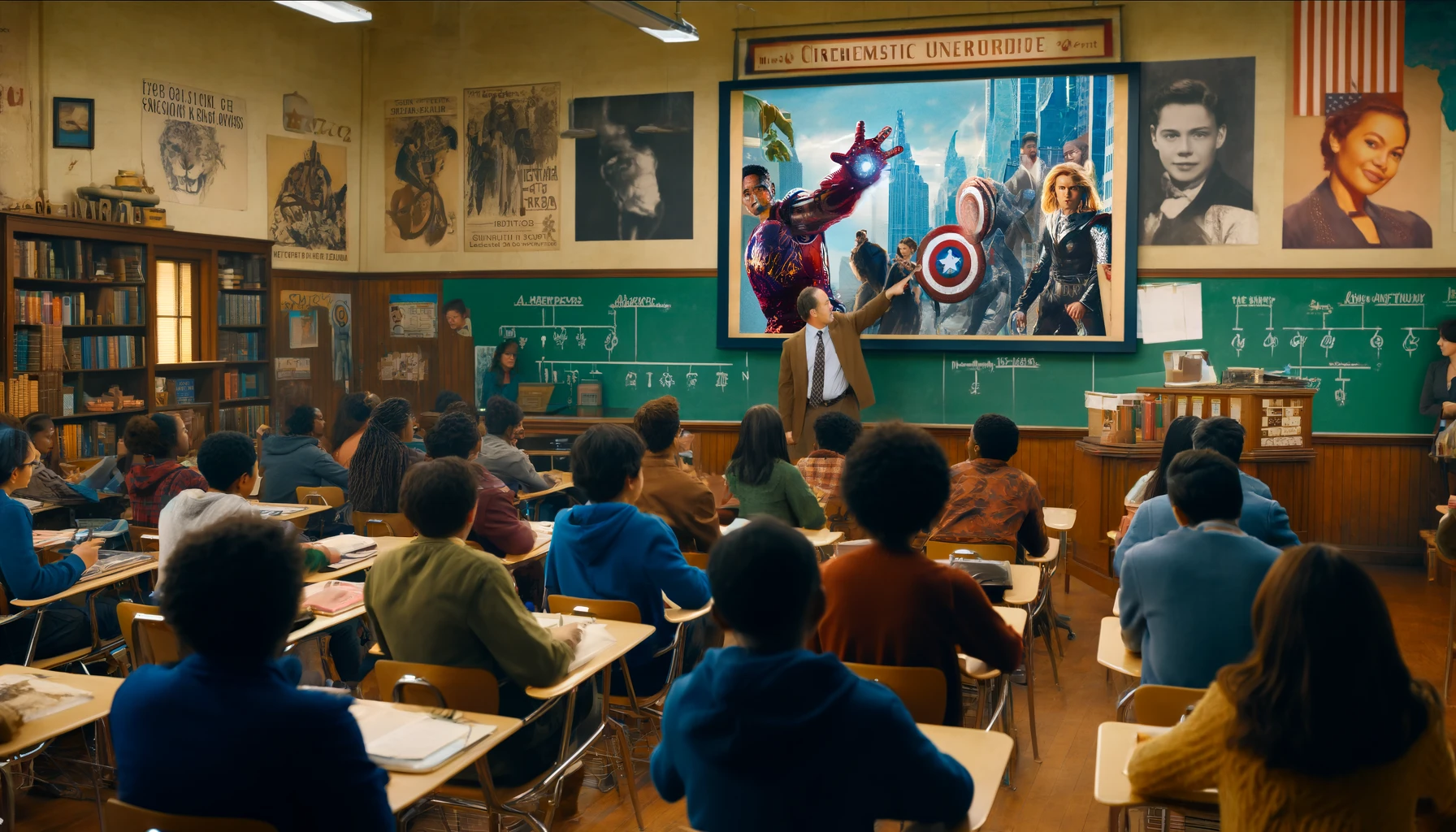Forget those dusty old textbooks and prepare for history class to level up with a serious dose of superhero power! In a groundbreaking move that’s bound to divide opinion, high schools across California are introducing a new curriculum module that tackles historical themes through the action-packed lens of the Marvel Cinematic Universe.
Imagine students dissecting the rise of Tony Stark for parallels to the Industrial Revolution, or debating the ethics of Captain America against the backdrop of World War II. Get ready for a classroom where the mythical realm of Asgard fuels discussions on Norse mythology, and the advanced nation of Wakanda sparks in-depth conversations about colonialism, technological isolationism, and its impact on global politics.
Naturally, this innovative approach is bound to spark debate, likely dividing educators into their own camps of enthusiastic supporters and concerned traditionalists. Critics might worry students will prioritize the fantastical world of the MCU over real-world events, replacing primary sources and nuanced historical analysis with Hollywood-fueled narratives. Yet, supporters of this superhero-infused curriculum argue that connecting pop culture to core concepts can make complex historical events more relatable and understandable for a generation raised on Iron Man and the Guardians of the Galaxy. They believe this approach can spark excitement and a lifelong passion for learning.
Beyond the debate, the potential for creative lesson plans is undeniable. Students could examine the portrayal of propaganda in Captain America films, comparing it to historical examples. They could analyze the evolution of technology throughout the Marvel films versus real-world technological advancements. A discussion of the complex character of Loki, trickster god and surprisingly tragic figure, could lead to a deeper exploration of the flawed heroes and multifaceted villains present in Norse mythology.
Then, of course, there’s the potential for sheer fun as teachers weave in movie clips, comic panels, and even fan theories to invigorate lessons. Students usually struggling to remember dates and figures might find themselves suddenly invested in Steve Rogers’ journey or the geopolitical complexities of Wakanda.
Whether this experiment transforms history classes in California into havens for future historians donning superhero t-shirts or simply injects a little extra excitement into a traditionally less-than-thrilling subject remains to be seen. But, like any epic Marvel battle, it’s a clash of innovation versus tradition, certain to spark a debate as fascinating as any super villain scheme.

